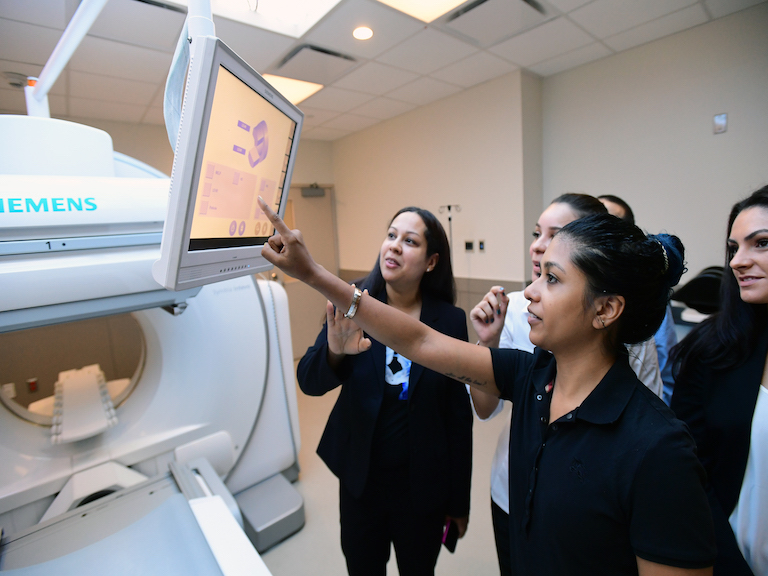Manhattan College is introducing a new online Master of Science in Healthcare Informatics to prepare students for positions within the field of healthcare that apply and assess healthcare data in decision making and strategic planning. The program will be part of the College’s new School of Health Professions. 
“We are thrilled to be adding healthcare informatics to our growing list of offerings in the health professions,” said William Clyde, executive vice president and provost of Manhattan College. “Housed in our School of Health Professions, this degree will prepare graduates to work in a rapidly growing field that is critically important to the efficiency and effectiveness of our health care system and the quality of patient care.”
Healthcare informatics is a fast-growing field and demand for these programs has increased in the last several years. A career in healthcare informatics prepares students to make a positive impact on the lives of others by improving healthcare and its delivery. Careers in healthcare see higher than average median salaries and are projected to grow faster than the national average during the next decade.
The program consists of seven-week intensive courses. Students will complete a total of 36 credits and receive the degree in 16 months. The program offers a graduate degree opportunity for individuals already working in the fields of nursing, medical and health service management and computer sciences and other related fields.
According to the American Health Information Management Association (AHIMA), the average salary for nonsupervisory healthcare informatics positions is more than $63,000 per year and $79,000 annually for supervisory level positions. Higher level executive positions can average more than $125,000, annually.
The Healthcare Informatics degree prepares students for careers in many healthcare positions, including: administrators, information managers, insurance underwriters, ambulatory care center managers, clinical directors, consultants and managed care managers.
“Healthcare informatics is a very important tool for the delivery of patient-centered care that results in best possible outcomes,” said Cathy Dwyer '98, vice president and CIO, Burke Rehabilitation Hospital in White Plains. “Working towards a Healthcare Informatics degree will help students become an integral part of the management and leadership teams at any institution.”